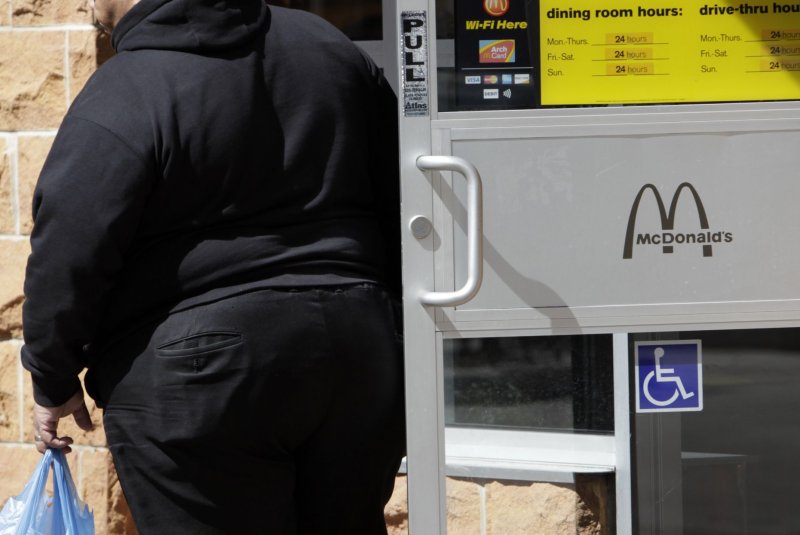Research suggests a Los Angeles fast-food ban has done little to decrease obesity rates. File Photo by Brian Kersey/UPI |
License Photo
LOS ANGELES, March 19 (UPI) -- In 2008, the city of Los Angeles pasted an ordinance placing restrictions on the establishment of new fast-food restaurants in areas with high rates of poverty. Some seven years later, and the law seems to have had no effect on the dietary habits or waistlines of local residents.
According to a new study by the nonprofit research group RAND Corporation, rates of obesity in neighborhoods targeted by the law have outpaced other parts of the city.
The 2008 ordinance subjected several neighborhoods -- including Baldwin Hills and Leimert Park, as well as portions of South Los Angeles and Southeast Los Angeles -- to a zoning regulation that prohibited the opening or expansion of standalone fast-food restaurants.
It wasn't the first zoning law to restrict the establishment of fast-food locations, but it was the first to do so as a strategy to improve public health.
"The South Los Angeles fast food ban may have symbolic value, but it has had no measurable impact in improving diets or reducing obesity," lead study author Roland Sturm, a senior economist at RAND, said in a press release. "This should not come as a surprise: Most food outlets in the area are small food stores or small restaurants with limited seating that are not affected by the policy."
Researchers from the University of North Carolina analyzed the law's effectiveness by tracking two data sets -- zoning permit records for new fast-food joints in Los Angeles County and health and nutrition information collected as part of the California Health Interview Survey.
Their analysis showed that while the ordinance succeeded in diminishing the size of new fast-food restaurants in the areas targeted by the law, that success had no baring on eating habits or obesity rates.
"The one bright spot we found is that soft drink consumption dropped, but the decrease was similar in all areas across Los Angeles," said Aiko Hattori, co-author and UNC researcher. "Unfortunately, the rates of overweight and obesity increased and they increased fastest in the area subject to the fast-food ban."
The new study was published in the journal Social Science and Medicine.















